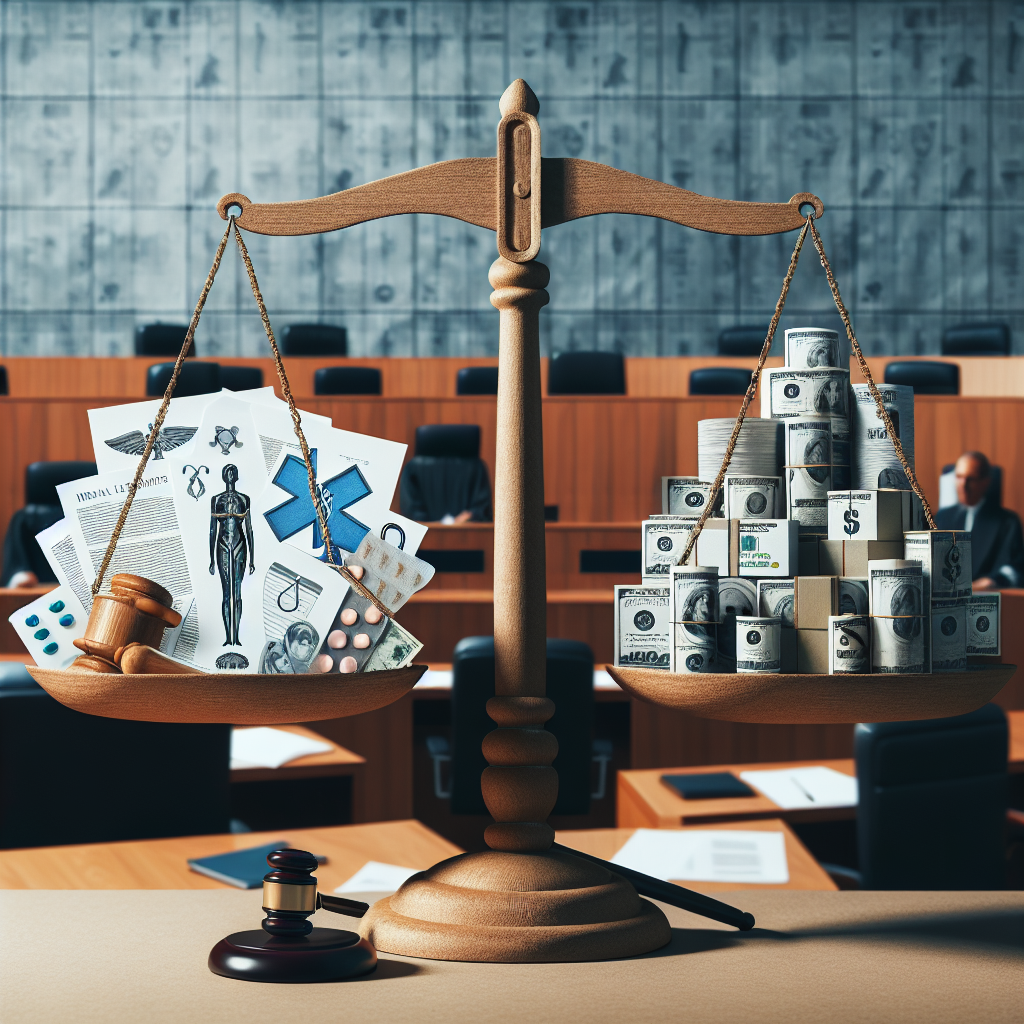Understanding Personal Injury Claims
In the landscape of legal disputes, personal injury claims hold a specific place. They encompass situations where a person suffers physical or psychological harm due to another party’s negligence. Understanding these claims involves delving into their core components: the injury, the responsibility, and the damages.
The Premise of Personal Injury Claims
A personal injury claim begins with an injury. However, not just any injury can form the basis of a legal claim. It must typically be a physical or mental harm that you did not provoke, which resulted from another person’s careless or intentional act. These acts can range from causing a car accident to defective product injuries, medical malpractice, or slip and fall accidents.
Establishing Liability
The second component of a personal injury claim involves determining who is responsible for the inflicted injury. It revolves around the principle of negligence, which implies that the party at fault behaved in a way that a prudent person would not have under the same circumstances. Importantly, it is not merely about establishing that another party was involved – it’s about proving they behaved recklessly or negligently, thereby causing your injury.
Quantifying Damages
Finally, to effectively pursue a personal injury claim, one must be able to demonstrate and quantify the damages suffered. Damages could be tangible, like medical expenses or loss of earnings, or intangible, like pain and suffering. This stage mainly involves gathering evidence that supports your claim for compensation. The clearer the connection between the demonstrated negligence and your injury, the stronger your case will be.
In conclusion, understanding personal injury claims is essential. They can seem complex but breaking them down into their fundamental components makes them more manageable. Embracing this knowledge aids significantly when navigating the legal terrain attached to such claims.
The Role of Medical Treatment in Personal Injury Cases
Understanding the Significance of Medical Care in Litigation
Medical treatment plays an integral role in personal injury cases as it directly impacts not only the well-being of a victim but also the outcome of the court case. When a person sustains an injury due to someone else’s negligence or intentional act, obtaining immediate and appropriate medical attention becomes crucial. Not only does this help in ensuring the victim’s quick recovery, but it also serves as a tangible proof of the injury and its severity in the court of law.
The Interplay between Medical Evidence and Legal Proceedings
Court proceedings are heavily based on evidence, and in personal injury claims, medical records are one of the most vital forms of evidentiary support. These records clearly document the extent of the victim’s injuries, their treatment, the cost of the treatment, and the prognosis for recovery. This medical documentation can significantly influence the determination of fault, the establishment of damages to be paid, and even the duration of the case itself. Without timely and proper medical care, this key piece of evidence can be lacking, thereby diminishing the chances of a successful personal injury claim.
The Role of Medical Professionals in Personal Injury Cases
Medical professionals serve more roles than merely treating the victim in personal injury cases. They also produce the relevant medical records which solidify the claim of harm to the victim. Additionally, they may sometimes be called upon as expert witnesses in court to explain the victim’s medical situation. Their testimonies hold great weight, as they can validate the victim’s injury claims and clarify any medical terminology or procedures that might be misunderstood by the jury. This goes a long way in helping the jury comprehend the case’s intricacies better and make a fair judgment.
Consequences of Delaying or Ignoring Medical Treatment
Potential Health Risks
Ignoring or delaying medical treatment after a personal injury can lead to potential health risks. Some injuries may not manifest themselves immediately and without timely medical attention, these could develop into serious complications. Furthermore, a delay in treatment may allow an injury to worsen, possibly leading to long-term or permanent damage. In some cases, what initially appears to be a minor issue may quickly escalate into a life-threatening condition without immediate medical intervention.
Impact on Legal Claim’s Validity
From a legal perspective, ignoring or delaying medical treatment can negatively impact the validity of personal injury claims. The opposing party or insurance company may argue that the injury is not as severe as claimed, or even nonexistent, if medical treatment is not sought promptly following the incident. This can severely undermine the credibility of your claim and may result in reduced compensation, or even dismissal of the case.
Financial Ramifications
In addition to the physical and legal implications, there are potential financial consequences of delaying or ignoring medical treatment after sustaining a personal injury. As aforementioned, this can adversely affect the viability of your claim and ultimately the compensation received. Moreover, if an injury is allowed to become more severe due to lack of early intervention, the ensuing medical costs may drastically increase. The financial burden may not just be from medical bills but could extend to costs related to prolonged recovery, lost wages, and reduced earning capacity.
How Medical Records Impact Your Personal Injury Claim
Understanding the Significance of Medical Records in Injury Claims
Medical records play an indispensable role in personal injury claims, particularly as they serve as concrete evidence of any injuries sustained and subsequent treatment received. Any discrepancies or gaps in these records can weaken your claim, hinder the potential for maximizing your compensation, and may even lead to a dismissal of the case. Thus, it’s imperative that individuals understand how to properly manage and maintain their medical records following an accident.
The Role of Medical Records in Validating Injuries
In personal injury claims, one’s medical records illustrate a detailed account of the physical injuries identified by medical professionals post-incident. They document the nature and extent of injuries, the immediate and long-term treatment plans, and include professional prognosis for recovery. This information is crucial in demonstrating the severity of injuries and in justifying the need for specific treatments and their associated costs.
Impact of Incomplete or Inconsistent Medical Records
An incomplete medical record poses significant risks to a personal injury claim. Failing to seek immediate medical attention after an accident may cause a lapse in the sequence of medical records and creates a window for doubt about the cause and timing of injuries. Similarly, inconsistent details or omitted information in the medical records can be damaging. Insurance companies or defense attorneys may argue that injuries were pre-existing or unrelated to the incident in question if there are inconsistencies or omissions in the medical documentation. Therefore, meticulous maintenance of your medical records is integral to support your injury claim.
Optimal Utilization of Medical Records in Claims
Ensuring all physician visits, treatment protocols, prescriptions, and hospital stays are well-documented and promptly treated is critical in fortifying your personal injury claim. Informing the treating doctor about all symptoms, no matter how minor they may seem, ensures this information is officially recorded. Additionally, always being completely transparent with your medical history prevents the opposition from discrediting the claim based on a pre-existing condition. In this way, properly kept medical records can underscore the authenticity of your injuries and reinforce the strength of your claim.
Legal Assistance for Personal Injury Claims Involving Medical Treatment
Seeking legal assistance may be crucial when your personal injury claim involves medical treatment. The following section will cover the importance of legal aid in such scenarios and how it can significantly impact the outcome of your claim.
Understanding the Legal Process
Navigating the legal system can be quite daunting, especially if you are struggling with health issues due to a personal injury. Understanding legal jargon and procedures often requires professional help. A personal injury attorney brings knowledge and expertise to the table, which can play an essential role in securing fair compensation for your medical treatment.
Quantifying Damages
One of the biggest challenges in personal injury claims involving medical treatment is quantifying damages. This involves assessing both financial costs and possible non-monetary damages like emotional distress. An experienced lawyer can help determine the value of your claim based on factors such as medical bills, future care needs, lost earnings, and pain and suffering.
Representation and Negotiation
Having competent legal representation can significantly bolster your case. Lawyers can advocate for your rights, negotiate with insurance companies, and if necessary, represent you in court. By receiving this assistance, you have a better chance of receiving the compensation you’re entitled to, allowing you to focus on your recovery.



